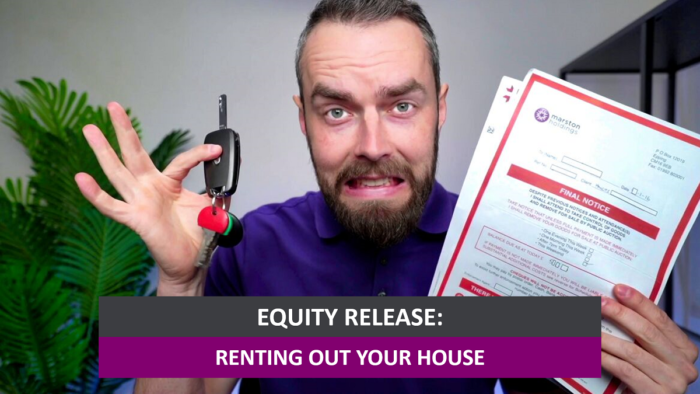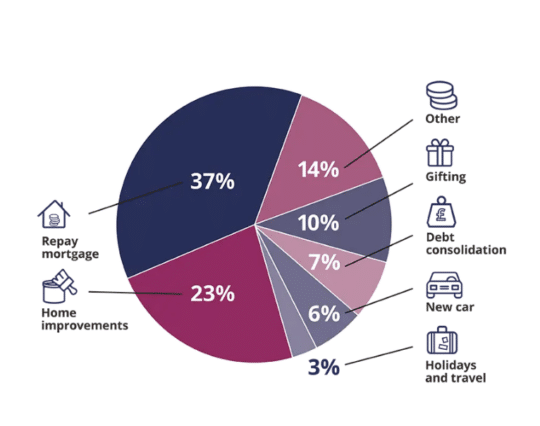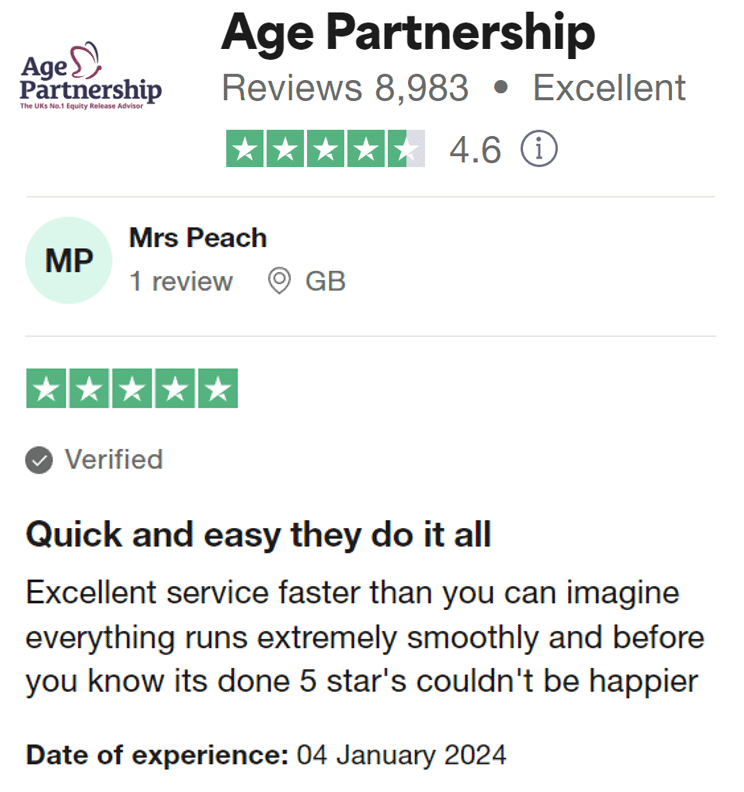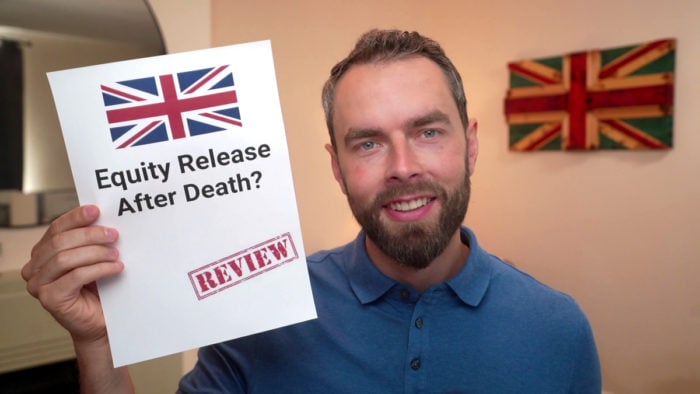Can I Rent out My House with Equity Release? Property Laws
Our preferred equity release adviser is Age Partnership. For free and impartial money advice you can visit MoneyHelper.

Our preferred equity release adviser is Age Partnership. For free and impartial money advice you can visit MoneyHelper.
Are you interested in equity release but not sure if you can rent out your house once you’ve got it? It can be a bit confusing, but we’re here to help. Our website is a go-to source for over 7,000 people every month who want to learn about equity release. In this article, we’ll go through:
- What equity release is and its purpose.
- How to get a realistic quote and qualify for equity release.
- The pros and cons of different equity release plans.
- The property laws around renting a house with equity release.
- The benefits of using an Equity Release Council (ERC) member.
We understand that the process of equity release can seem daunting, but don’t worry; we have a lot of advice to guide you. We’re here to help you figure out if equity release is the right choice for you and your home.
Let’s dive in and discuss your options.
Can you do equity release on a rental property?
You cannot release equity on rental properties unless you plan to live in the property as your main residence. The same is true for UK holiday homes you might own.
This is because equity release plans are only available on the properties you habitually reside at. You might need to have lived there for some time before becoming eligible to use equity release. If you stop living at the property you take equity out of with equity release, the lender will force you to sell the home and repay the debt. This is why the debt also becomes repayable before you die if you move into long-term care.
Can you let a property with equity release?
For the same reason you cannot take out an equity release plan on a rental property, you cannot start renting out the property you have taken out an equity release plan on.
To rent out the property, you would have to move out first, which would trigger the requirement to repay the debt and early repayment charges. The cost of doing this would be enormous and unaffordable to most people.
If you stop living at the property and try to secretly rent it out without your lender knowing, you could end up in big trouble and in significant immediate debt. This situation should be avoided.
How equity release could help
More than 2 million people have used Age Partnership to release equity since 2004.
How your money is up to you, but here’s what their customers do…
Find out how much equity you could release by clicking the button below.
In partnership with Age Partnership.
Can I have a tenant with equity release?
Most equity release providers do not allow the homeowner to have a third party tenant living in the property.
It’s important to understand the agreeable definition of a ‘tenant’. A tenant is usually someone who has exclusive access to rooms of the property where the homeowner is not allowed to go.
For example, someone living in an annexe on the property with a locked door would be considered a tenant. This is highly unlikely to be allowed by the equity release provider. The reason for this is that a tenant has legal rights to (access) the property.
Can I have a lodger with equity release?
In most cases, equity release providers allow homeowners to have lodgers in the property after taking out an equity release plan. But they may implement a cap on the number of lodgers allowed.
A lodger is defined as someone who shares rooms and resources of the property with no exclusive access to any part of the property, and no legal rights to access it.
If a lodger is present or becomes present after equity release, the lender might ask them to sign a form to declare they will vacate the property if it needs to be sold while they are still living there. So, if the homeowner died, the lender could oust the lodger and sell the home to recover the debt with no issues or complaints.
Join thousands of others who release equity
Age Partnership have helped over 2 million people release equity from their home.

Mrs Wareham
“I am more than pleased to have taken out Equity Release with Age Partnership.”
Reviews shown are for Age Partnership. Search powered by Age Partnership.
Can you sell a house that has equity release?
Lifetime mortgages are designed to last your entire life, hence their name. So, if you just want to sell the property with an equity release plan attached, the costs of doing so can be eye-watering. Not only will you need to repay the debt, but you will trigger early repayment costs which can be huge.
However, if you are selling the home to move to a new one, you might be able to take your equity release plan or lifetime mortgage with you. The ERC states that any homeowner must be allowed to move home to a suitable property and take the equity release plan with them. But what is classed as suitable?
‘Suitable’ means a property of equal or higher value, and one that can be just as easy to sell on the property market. For example, moving from a £150,000 flat to a £200,000 home in the suburbs. But moving from a £75,000 flat to a £65,000 boathouse might not be acceptable because it would be harder to sell a boathouse on the open market.
But what about downsizing? Can you downsize to a lesser valuable property with equity release? The answer is yes – but there is a smart way to do it. Simply downsizing could mean having to pay early repayment charges on the amount you need to pay off to move to a less valuable home. But if you already have these plans, you can get a downsizing clause added to your equity release credit agreement so no early repayment charges are applied.
Want more information about equity release and your homeowner rights? Find out more on our other free MoneyNerd guides. We have scores of articles on this subject!
Things to consider
Equity release will involve a home reversion or a lifetime mortgage, which is secured against your property and will reduce the value of your estate and impact funding long-term care. Our equity release partner, Age Partnership provides a personalised illustration to explain the full details. The money you release, plus the accrued interest is then repaid when you die or move into long-term care. Advice is required before proceeding with equity release and any existing mortgage must be repaid. Age Partnership provide initial advice for free and without obligation. Only if your case completes would Age Partnership’s advice fee of £1,895 be payable. Other lender and solicitor fees may apply.




